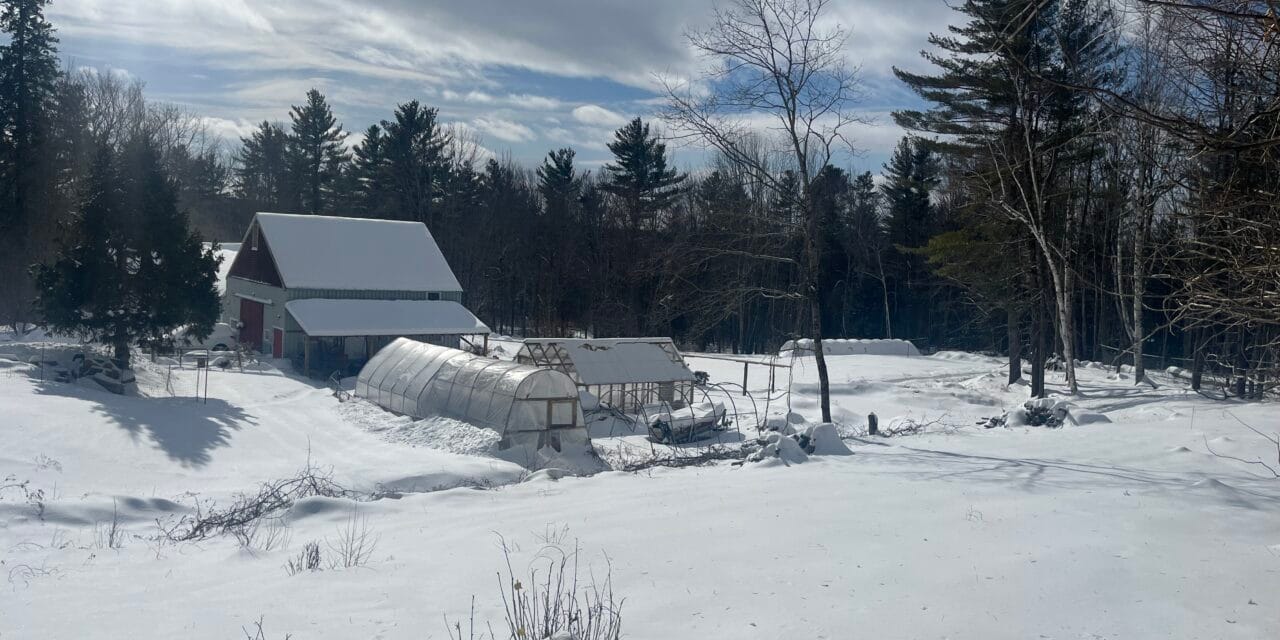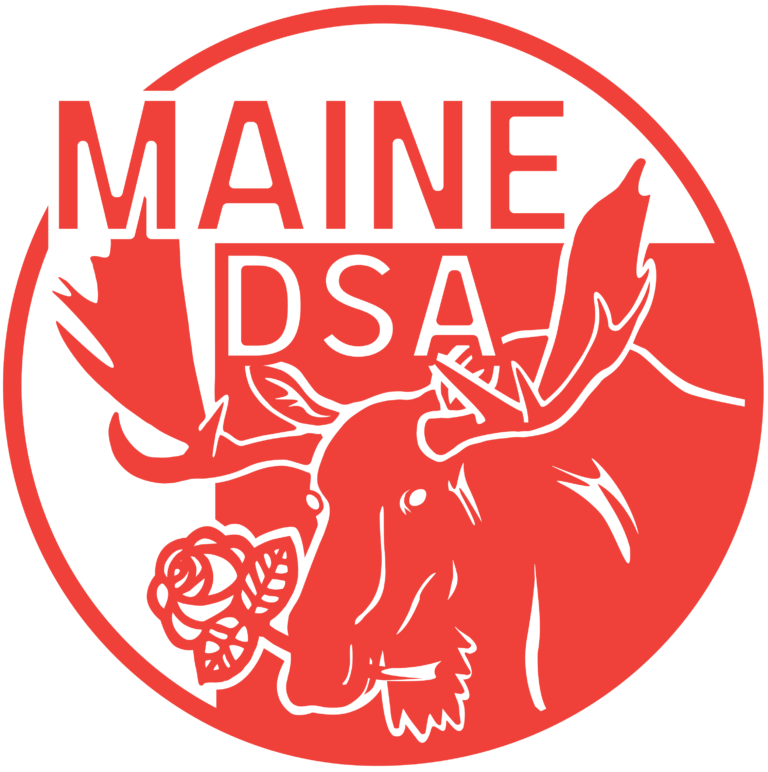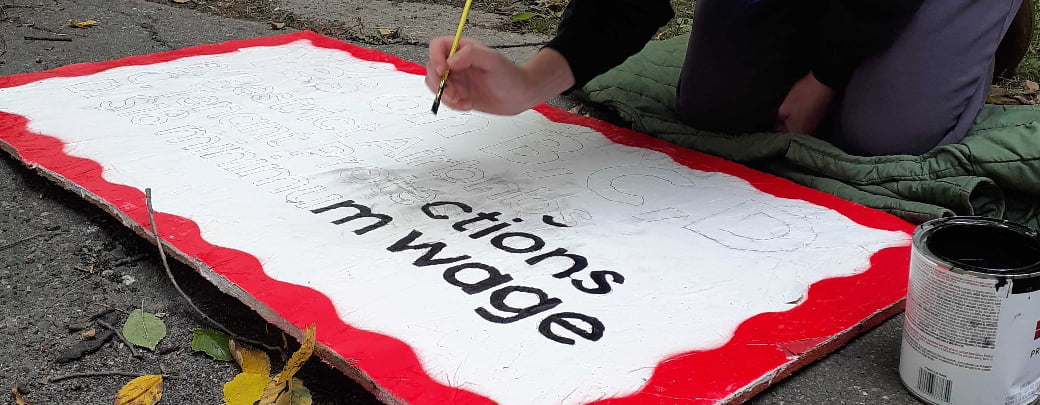With the start of planting season just six weeks away, President Trump is cutting the legs out from under farmers all over the state. While we’re planting seedlings for the spring, many small farmers are wondering if the federal government will default on signed contracts or eliminate funding for critical farm infrastructure.
As a farmer myself, these cuts are hitting close to home. While small farms don’t receive anything like the amount of federal subsidies Big Ag gets, small farms do have access to supports that help sustain and expand local agriculture. Some of these programs go all the way back to the Great Depression. For instance, the National Resource Conservation Service—Trump hasn’t censored its website yet—explains that the “NRCS was born out of troubled times — the Dust Bowl days of the 1930s.” Back then, FDR offered workers and farmers a New Deal. Today, Trump’s doubling down on a Raw Deal.
Speaking personally, I applied for two grants that Trump has put at risk. The first is an NRCS grant to build a greenhouse. The grants are not guaranteed and farmers must demonstrate the money will measurably improve their ability to provide food for the local community. After talking to the Maine NRCS office, it looks like Trump has not halted this funding. That’s the good news. The bad news is that the NRCS specialist who inspected my farm as part of the application process has been terminated by Trump. So even in instances where the funding itself may continue, the danger is that slashing the federal agriculture experts who administer the funds and manage the grant process may delay the funding. This could mean missing the chance to increase the farm’s productivity for an entire growing season. And that can mean the difference between staying afloat or going under. Expanding greenhouse growing in Maine produces more local tomatoes, peppers, and cucumbers instead of shipping them in from hundreds or thousands of miles away.
My second grant request was to purchase equipment and supplies to upgrade my vegetable washing and packing (wash/pack) stations. Local farms prioritize fresh produce delivered within a few days of harvest, this puts a premium on efficiently cleaning and packing veggies for sale. The Maine Organic Farmers and Gardeners Association administers this grant with money originating in the USDA. The good news is that I’ve been approved by MOFGA for this grant in part or in whole. The bad news is that MOFGA is struggling to figure out if Trump will disperse these funds even though Congress has already approved them! And like the first grant, it’s time sensitive so even it if comes through, but comes through late, I won’t be able to use it this year and I will, subsequently, have to reduce the amount of vegetables I can harvest, clean, and pack… or I will have to work many more hours to do so.
MOFGA reports that much of the more than $1 million in support for local, organic farms that it helps administer is up in the air. All this confusion comes at a particularly bad time for farmers as spring approaches. As Executive Director Sarah Alexander wrote, “The uncertainty and the barrage of information and actions that are coming our way are meant to overwhelm us, take up our energy and resources, and pull us away from our mission-oriented work.”
As an organic farmer, I love MOFGA and groups like Maine Farmland Trust are doing yeoman’s work defending local agriculture. But I have to say that working with federal and state workers from the USDA, the Farm Service Agency, the NRCS, the Maine Farm and Sea to School Network, and the UMaine Agricultural Extension has been one of the best things about being a farmer. Dedicated, friendly, and knowledgeable. These are the people who Trump has in his crosshairs. It’s not only a tragedy for people who’ve dedicated themselves to helping farmers, it’s a terrible loss of institutional knowledge that will hurt Maine farms for years to come.
My situation is tough at Fair Share Farm, but there are lots of farmers who are getting an even shorter end of the stick. Many have planned big projects and are counting on federal funding as a component in long-planned outlays. For instance, Kevin Leavitt—aka Farmer Kev—explained how Trump canceling a $45,000 payment has left him in the lurch in building a solar array—for which he’s also secured a $90,000 loan and put up $15,000 in cash—at Kev’s Organic Farm in Gardener, “I have a signed contract! Forget politics, forget policy, a contract is a contract. You can’t take it back. Without that reimbursement, it all falls apart for me. I can’t get my loan. I can’t pay the contractor. I can’t see a way forward.”
Farms all over the state are stuck in similar dilemmas, from small farms like mine to bigger farms like Gorenson’s and Wolf’s Neck.
What about the politics of all this? Rep. Chellie Pingree in District 1—herself once an organic farmer—has been, to her credit, banging the drum about the damage Trump is doing to local agriculture. What about Jared Golden in farm-heavy District 2? He’s “awaiting more legal clarity.”
Where, you might ask, will all the money Trump robs from small farms go? I grow vegetables but I know a pig feeding at the trough when I see one. Musk’s Space X and Starlink have taken in billions in federal funds over the last decade and are looking for the bonanza to continue.




